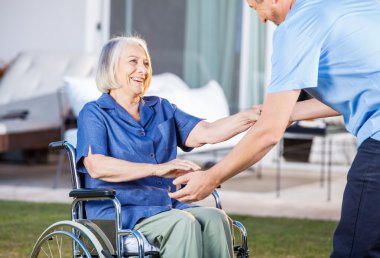The Importance Of Aged Care Emergency Training: Essential Skills For Safety
As the population ages, the need for quality aged care services becomes more crucial than ever. Providing excellent care involves a myriad of skills, ranging from medical knowledge to interpersonal abilities. Among these, one of the most critical yet sometimes overlooked is emergency training. Emergency training equips caregivers with the skills necessary to handle unexpected and potentially life-threatening situations, ensuring the safety and well-being of elderly residents. In this article, we'll explore the essential skills for aged care, with a particular focus on why emergency training is indispensable.
Understanding Aged Care
Aged care encompasses a wide range of services designed to support the health and well-being of older adults. These services can be provided in various settings, including residential aged care facilities, in-home care, and community centers. The primary goal is to help seniors maintain their independence and quality of life as they age.
Core Skills in Aged Care
To excel in aged care, caregivers need a combination of technical skills, personal qualities, and specific training. Some of the core skills include:
Medical Knowledge
Caregivers must have a basic understanding of common health conditions affecting the elderly, such as dementia, arthritis, and cardiovascular diseases. This knowledge helps in monitoring residents' health and administering medications correctly.
Communication Skills
Effective communication is vital in aged care. Caregivers must be able to communicate clearly with residents, their families, and other healthcare professionals. This includes being able to listen empathetically and convey information in a way that is easily understood.

Compassion and Patience
Working with elderly individuals requires a high degree of compassion and patience. Caregivers often deal with residents who may be experiencing pain, confusion, or emotional distress. Being empathetic and patient helps in building trust and providing comfort.
Physical Strength and Stamina
Aged care work can be physically demanding. Caregivers often assist with lifting, transferring, and mobilizing residents. Good physical health and stamina are necessary to perform these tasks safely and effectively.
Problem-Solving Skills
Every day in aged care can present new challenges. Caregivers need strong problem-solving skills to address issues as they arise, whether it's managing a resident's behavioral changes or handling a sudden health crisis.
The Crucial Role of Emergency Training
Among all the skills required for aged care, emergency training stands out as particularly crucial. Here’s why:
Preparedness for Medical Emergencies
Elderly residents are at a higher risk for medical emergencies, such as heart attacks, strokes, falls, and choking incidents. Emergency training prepares caregivers to respond swiftly and effectively to these situations, potentially saving lives.

Confidence and Competence
Emergency situations can be stressful and chaotic. Caregivers who have undergone emergency training are more likely to remain calm and composed, ensuring that they can think clearly and act appropriately. This confidence is vital in managing the situation and providing reassurance to residents and their families.
Reducing Response Time
In an emergency, every second counts. Trained caregivers can quickly assess the situation, determine the best course of action, and provide immediate care while waiting for professional medical assistance. This rapid response can significantly improve outcomes for the affected individual.
Compliance with Regulations
Many regions have strict regulations and standards for aged care facilities. Ensuring that staff are trained in emergency procedures helps facilities comply with these regulations, avoiding legal issues and ensuring a high standard of care.
Enhancing Overall Safety
Emergency training doesn't just prepare caregivers for medical crises; it also encompasses fire safety, evacuation procedures, and handling hazardous materials. This comprehensive approach enhances the overall safety of the care environment, protecting both residents and staff. Contact On Alert for more details.
Components of Effective Emergency Training
Effective emergency training programs for aged care should include the following components:
- First Aid and CPR Certification: Caregivers should be certified in first aid and cardiopulmonary resuscitation (CPR). These skills are fundamental in providing immediate care during medical emergencies.
- Scenario-Based Drills: Regular drills and simulations help caregivers practice their skills in a controlled environment. These drills should cover a range of scenarios, from medical emergencies to natural disasters.
- Ongoing Education: Emergency training shouldn't be a one-time event. Continuous education and refresher courses ensure that caregivers stay up-to-date with the latest protocols and techniques.
- Collaboration and Communication: Training should emphasize the importance of teamwork and effective communication. In an emergency, caregivers must work together and communicate clearly to manage the situation effectively.
- Psychological Preparedness: Dealing with emergencies can be emotionally taxing. Training programs should include strategies for managing stress and coping with the psychological impact of emergency situations.
In the field of aged care, where the well-being of vulnerable individuals is at stake, the importance of emergency training cannot be overstated. This training equips caregivers with the skills and confidence needed to handle unexpected situations, ensuring the safety and security of elderly residents. By prioritizing emergency training, aged care facilities can enhance their overall quality of care, providing peace of mind to residents and their families.

